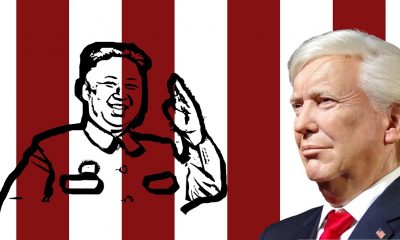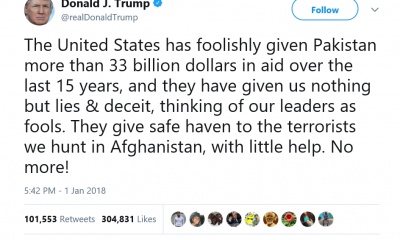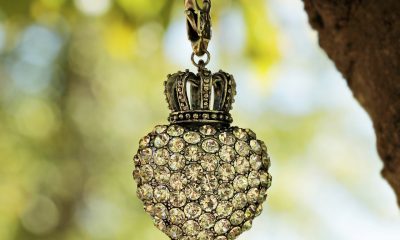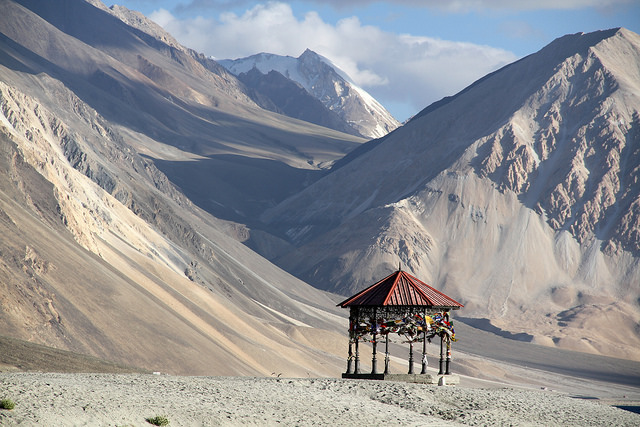India Russia Cooperation
Reinvigorating the Indo-Russian camaraderie
India and Russia have been de facto geopolitical allies with the alliance dating back to Cold war era. Last week’s visit to India at the annual bilateral meeting by Vladimir Putin was as strategic as it has been symbolically perceived by the world. It has proved the mettle of Indian and Russian ties reconciling a strong partnership despite the ongoing global geopolitical realignment.
The Indo-Russian annual bilateral meeting came at a time when Russia is battling with the ghosts of plummeting oil prices and facing the heat of Western sanctions springing from her Crimean annexation. On the other hand India is trying to catalyse her economic growth and improve her global standing under the new leadership. There have been hiccups in Indian and Russian friendship given the recent developments. Russian trade and arm deals with China and Pakistan respectively have irked India while India’s decision to buy Rafale fighters and Apache copters from France and US have met disapproving bristles from Russia. The meeting hence came at a very crucial juncture for both the countries.
Putin’s visit that spanned less than 24 hours has definitely boosted the Indo-Russian ties with more strength. Putin brought along with him a delegation of 15, comprising of Russian business magnates to attend the summit. Putin-Modi meeting at the summit culminated with 20 agreements being signed by the leaders. Narendra Modi went on to say that Russia shall remain the biggest defence supplier to India. India and Russia signed major agreements on nuclear energy, crude oil and gas, defence, fertilizers, diamonds and space.
Russia will be building 12 nuclear plants in India over the next two decades as per the nuclear agreement. Another major agreement involves Russia building her multi-role aircrafts in India; this would be first major defence project under Modi’s flagship scheme, “Make in India”. Russia’s state-owned Rosneft would be supplying 10-million-tonnes of oil per year to India. Apart from that joint hydro-electric power projects have been agreed upon. Both leaders have agreed upon a decadal roadmap to transform and improve the Indo-Russian bilateral trade.
The trade and defence agreements show the vision of both the leaders to take the Indo-Russian relations to a higher trajectory. Certainly sends out a clear message about India and Russia being all-weather allies.
India Russia Cooperation
Diamond Diplomacy: India and Russia Natural Allies in Reshaping Diamond Industry

India and Russia traditionally enjoy warm relations since the Soviet era. It has been recently due to several geopolitical changes in a short period of time that the two countries are drifting apart. While the two countries maintain an understanding of each other, their priorities and personal interests do not align as much as they did earlier.
In the midst of these global challenges, the two countries have been identifying new trade opportunities and diamond comes as a perfect solution. Unfortunately, both the countries have been struggling to meet their bilateral trade goals, which is mainly military based. Russia is the largest producer of the rough diamond. It’s state-owned diamond mining firm Alrosa accounts for 25 percent of the world output. India, on the other hand, is the leader in diamond processing. 93% of world’s diamond, whether they are in industrial use or in solitaire diamond jewellery, has been on Indian soil once for processing.
Most of the Russian diamond eventually ends up in India for processing which is worth billions of dollars. However, a very small part of it comes via direct import. Most of the Russian diamonds take a long route before arriving in India, thus raising costs. In 2013, direct import of Russian diamond into India amounted at $767 million.
India understands the value of direct import of Rusian diamonds and how this can help grow trade between the two countries, which has not met its potential despite decades of friendly relations. In 2016, India declared reforms ending the roles of intermediaries that were causing roadblocks in the import of Russian diamond. India also created a special customs zone in Bharat Diamond Bourse in Mumbai with relaxed taxation and customs to allow easy import of Russian diamonds. Moreover, India is testing an Israeli technology to ensure a standardised process of grading polished diamonds, which is important given the potential of diamond trade becoming another major area of cooperation between India and Russia.
This new form of diplomacy will create a broader business cooperation involving private players and adding at least $4 billion to $5 billion in trade between the two countries. Currently, 50% of diamonds processed in India head their way to the US market. Russia accounted for only $8.9 million worth export of diamonds from India in 2011 despite Russia having $16 billion worth of diamond retail industry. This makes Russian market impressive for Indian companies making diamond diplomacy a win-win approach.
So if you are going to a jewellery store or buy diamond pendants online, you can thank this low profile diamond diplomacy between India and Russia.
India Russia Cooperation
Why India should choose Russia over USA
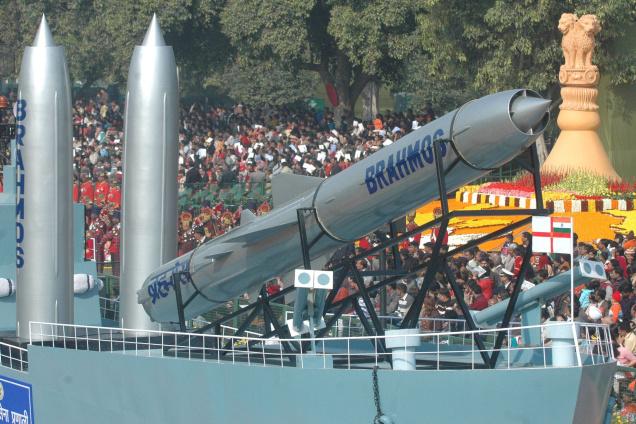
India’s relations with the Soviet Union can be traced back to the 15th century when the Russian merchant Afanasy Nikitin visited Northern India and published an account of his travels. Soviets started developing friendly relationship with India since 1950s. The government of India approached the Soviet Union only when it got disgusted with the Anglo-American attitude of patronizing Pakistan at the cost of India because the latter had the courage to take independent line of action on several world issues. India and the Soviet Union exchanged military attaches in their respective embassies in 1955. By now India had signed numerous pacts with USSR. The weapons and defense equipment provided by Soviets were cheaper than that of the Wests. The Soviets also provided facilities to assemble the aircrafts and other equipment in India and gave training to Indian soldiers to operate sophisticated weapons. They dealt with India in soft currency unlike other countries who demanded hard currency. This system continued even after collapse of Soviets and development of Russia. The Russians considered India as an ally and continued selling weapons to India. Russia is India’s biggest arms supplier. This helps Russia to maintain its economy and fund its weapons industry. In recent years, India had been trying to develop its own aircraft with the help of the Russians. In the defence arena, the Indo-Russian relations have evolved from buyer-seller relationship to joint collaborators in such big-ticket projects as Fifth Generation Fighter Aircraft (FGFA) and BrahMos missile. The biggest USP of Russia for India is while other countries are reluctant to transfer technology; the Russians do it without any fuss.
India cannot afford to sacrifice the current military cop-operation with Russia. In material technologies and strategic raw materials inheritance, Russian strength is well acknowledged, Russia is far better source for easier technology transfer than what India can ever hope from USA. One cannot forget that George W. Bush is pensioned and the U.S. Congress has a substantial chunk of Congress members heavily opposed to India’s nuclear power status due to India’s positions on NPT and CTBT. Moreover, India got itself tied-up with the Russians. India will need Russian support, be it on Kashmir or other matters at the UNSC, if India radically sways away from Russia, Vladimir Putin could anytime open up Pakistan military aid option. One cannot decline to discern that Russia is a factual Eurasion power enjoying the largest land mass in the world. It may possibly have the largest nuclear submarine fleet and one does not know how many Russians submarines are floating around India or the USA. Hence, irritating one such as Russia is out of question for India. Though, such an event doesn’t seem possible in the near future because Russia has always been friendly to India even during Soviet times when Uncle Sam looked the other way supporting Pakistan dictatorship against India. Any India connivance with a pro-America military alliance will cost us blood and other economic problems. India’s friendship with Iran and Afghan would get strained. This would result in decrease in supply of oil from Iran as India will have to follow USA’s policy of sanctions on Iran and it will also make hostile situations between India and Muslim countries. On the other hand, Russia supports both, Iran and Afghan. Russia has long been an invited observer of OPEC meetings and know their Arab friends quite well.
Russia’s game in the world is open. Nonetheless, it does not foreclose India’s military cooperation with democratic forces in Asia vis-à-vis a potential Chinese power aggression. India needs to culture Russian relationship deeper so that it works as an antidote to any possible Sino-Pak aggression on India. American help in such a situation would mean confrontation, a Russian help peaceful compromise. If both China and Pakistan were to gang-up on India, the US, in order not to risk a nuclear war, will stay neutral. Russia, on the other hand, would provide intermediary help, because Russia has a certain strategic leverage on China. China needs Russia’s strategic alliance for SCO (Shanghai Cooperation Organization) to succeed. The SCO is a Eurasian Silk Road, which in the long run expectedly change the entire economic landscape of Eurasian continent, guaranteeing economic future of all involved. Why should India forego a chance for that reality by entering into U.S.–tailored Asian defense alliance principally designed to torpedo such developments to keep up U.S. predominance.
Moreover, USA is one of the most self-centric country in the world. History is witness that USA is not a reliable partner in several areas, politics, military and hardware spare parts. India will be optioned to buy whole-system units at high prices, probably with loans from US Banks to get India mortgaged to the US as a permanent financial slave. Whenever and wherever US helped, it made sure it got something solid in return.
Russia is a much more reliable partner as it has helped India on several occasions in many fields, politics, military, business, etc. Let it be the 1971 War with Pakistan or Nuclear tests or many other fields, it was Russia and former Soviet Union which stood by India and helped it to come over hard times. India will have to choose its friends and foes carefully in order to succeed in this modern world.
TWR Note: Articles under students’ column are written by school going students. Readers and commenters are requested to maintain healthy debate avoiding the use of improper language. Please stay away from directing personal attacks.
India Russia Cooperation
India and Russia naturally find each other with the recent geopolitical developments
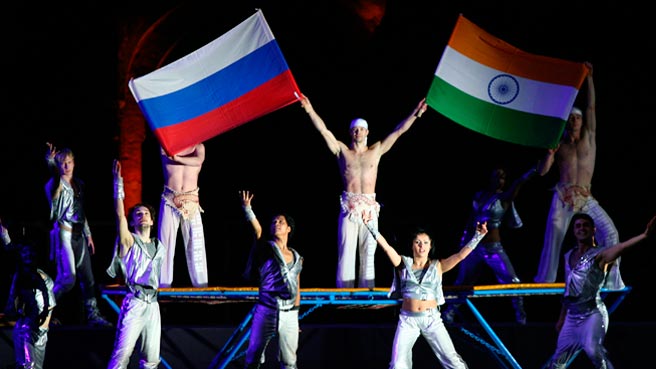
(c) Reuters
In the recent development in Crimea, majority of the countries voted in the favour of EU and US backed Crimea resolution, yet it was the failure of western diplomacy when it comes to India. With its shifting focus towards Asia Pacific, fruitful and cooperative relations with India holds the key for the US. The seeds of alliance that US was sowing with India resulted in nothing when the two arch-rivals, Russia and the US, stood once again face to face. In the Crimea resolution, hundreds of nations voted in its favour while India abstained from the voting staying with its traditional friend, Russia.
The US understands the importance of India to the extent that in June 2007, US Defence Secretary Leon Panetta proposed a defence alliance, which India had refused. The U.S gave much of the focus to counter terrorism, markets and balancing China with the help of India, however little was done to dilute Indo-Russian ties, which are strong since Soviet period. Russia remained India’s top supplier of arms and weapons and it continued supporting India’s civil nuclear program very actively.
Dictating with whom India will buy oil and making the middle eastern region so vulnerable in the past few decades, US has naturally made India look elsewhere for a stable source of oil. On the other hand, EU nations threatening to reduce their dependency on Russian oil and gas has made Russia and India find each other naturally so attractive that last week Rosneft CEO Igor Sechin visited India and discussed on various logistic possibilities of supplying oil to India.
In December 2013, Indo US ties took a steep downward turn when Indian diplomat in the US, Devyani Khobragade was arrested and strip searched forcing India to deport American diplomatic couple Wayne May and his wife Alicia Muller May in retaliatory action. Their comments later came into light describing India as a zoo and offending vegetarians and cows did more damage than good to the ties.
Efforts of Hilary Clinton in shaping better Indo US ties went in vain once again when India shocked the US after abstaining from voting against Sri Lanka at the UN Human Rights Council on March 28th. Abstaining from voting in Sri Lanka resolution gives a very interesting insight on India’s shifting geopolitical priorities because in 2012 and in 2013 India had voted in favour of the resolution. Surprised and elated by the decision, Sri Lankan government immediately released all fishermen in their custody in a goodwill gesture.
If India aspires to become a regional or global power then its priority should be having a peaceful neighbourhood and a healthy competition with China. With US interferences, India may not achieve peak of its relations with Iran, China and Sri Lanka.
At the time when Indo US relations are becoming colder, and western countries are threatening to isolate Russia, India and Russia should engage themselves in active strategic and economic partnership by sharing markets and reducing their dependency on US dollars. Re enabling the rupee-ruble trade arrangement, which was active between India and USSR and allowing trade in national currencies with BRIC nations would help emerging economies come out of dollar diplomacy.
Russia has been pitching for an alternative of Mastercard and Visa with Sberbank’s PRO 100. Its less penetration and no support outside Russia is lowering its appeal. There should be made a provision to support each other’s payment systems. India has Rupay, which is expected to have wider coverage than MasterCard, Visa and American Express in India in the near future. Recognizing and supporting each other’s payment systems will make business and tourism more attractive in the wake of any March 21st like sanction which blocked the transactions on MasterCard and Visa cards holder of SMP bank and InvestCapitalBank in Russia.
Along with relaxing the visa regulations, the two nations should explore more possibilities of cooperation in various other sectors like agriculture and information technology. It is an irony that Ukrainians did not support integration with Customs Union, but India is very actively discussing the possibility of signing an economic cooperation agreement. A Free Trade Agreement between India and ASEAN, which came into effect on 1st January 2010, helped the two-way trade between India and ASEAN reach US$79 billion. A similar agreement with Russia and Customs Union may help achieve the ambitious goal of US$ 20billion in bilateral trade by 2015.
India’s degrading ties with the United States and recent developments in Crimea, has made Russia and India deepen their ties further. With Brazil, India, China and South Africa abstaining from voting in Crimea Resolution, we can see BRICS has emerged finding a common ground of political and economic cooperation. Emerging economies are finding each other closer than ever before for a multi-polar world.
-

 Travel11 months ago
Travel11 months agoImmerse Yourself in Nature: Explore Forest Bathing with a New Guidebook
-

 Europe11 months ago
Europe11 months agoBarcelona and Athens: cities that will leave an everlasting impression
-
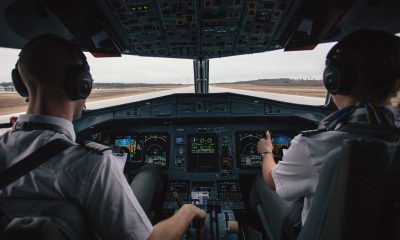
 Technology11 months ago
Technology11 months agoHow Virtual Fly Elevates the World of Flight Simulators
-

 Health11 months ago
Health11 months agoExperience in clinical quality: What is it, and why is it important?
-

 Business7 months ago
Business7 months agoServiceNow Development Consultancy: Business Process Automation as Disruptive Technology
-

 Environment8 months ago
Environment8 months agoThe Future of Fashion: The Rise of Eco-Conscious Brands in the Luxury Market
-

 Travel8 months ago
Travel8 months agoEnjoy a luxury holiday in Zanzibar
-

 Business9 months ago
Business9 months agoScreen Printing Services: A Beginner’s Guide to Avoiding Mistakes and Maximizing Your Investment


